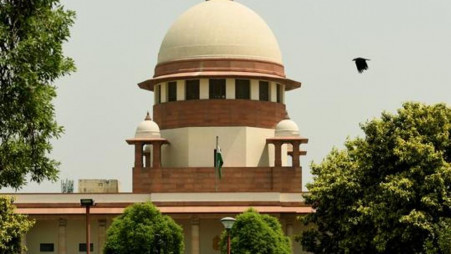'Will Muslims be allowed to be part of Hindu trusts?': Indian SC asks Centre during Waqf hearing
The Supreme Court also observed that "undoing the waqf by users" would create problems

Hearing a clutch of petitions against the recent amendments to the Waqf Act, the Supreme Court on Wednesday asked the Centre whether it was willing to allow Muslims to be part of Hindu religious trusts.
Several politicians, including AIMIM chief Asaduddin Owaisi, have moved the court against the amendments. One of the most contentious changes to the law is the provision allowing non-Muslims to be included in Waqf boards.
The Supreme Court also observed that "undoing the waqf by users" would create problems.
The Supreme Court observed that many mosques were constructed in the 14th and 15th centuries, and to require them to produce deeds was impossible.
The court also expressed concerns about the violence over the Waqf Act.
"The one thing that is very disturbing is the violence that is taking place. The issue is before the court, and we will decide," CJI Sanjiv Khanna said.
The Supreme Court will continue its hearing tomorrow at 2 pm.
Waqf hearing in Supreme Court
Earlier, the Supreme Court began hearing a batch of petitions challenging the constitutional validity of the Waqf (Amendment) Act, 2025.
A bench comprising Chief Justice Sanjiv Khanna and Justices Sanjay Kumar and K V Viswanathan outlined two aspects.
"There are two aspects we want to ask both sides to address. Firstly, whether we should entertain or relegate it to the high court? Secondly, point out in brief what you are really urging and wanting to argue?" the CJI said.
"The second point may help us in deciding the first issue to some extent," the CJI added.
The Centre recently notified the Waqf (Amendment) Act, 2025, which got the assent of President Droupadi Murmu on April 5.
The bill was passed in the Rajya Sabha with 128 members voting in favour and 95 opposing it. It was cleared by the Lok Sabha, with 288 members supporting it and 232 against it.
As many as 72 petitions, including those by AIMIM leader Asaduddin Owaisi, All India Muslim Personal Law Board (AIMPLB), Jamiat Ulama-i-Hind, the Dravida Munnetra Kazhagam (DMK), Congress MPs Imran Pratapgarhi and Mohammad Jawed, have been filed challenging the validity of the Act.



 Keep updated, follow The Business Standard's Google news channel
Keep updated, follow The Business Standard's Google news channel
















